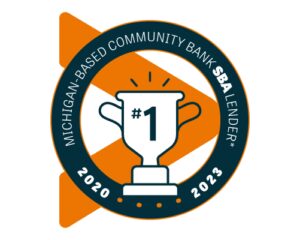Your financial security is important to The State Bank that is why we work to shield your accounts from various types of fraud. The bank has features in place that work to help secure and protect your account and personal information.
.
Policies and procedures are in place which assists in detecting fraud. In addition, anti-virus software, firewalls, intrusion detection devices are all in place to assist in detecting fraudulent activity. Every year we host employee training to keep employees up to date on security, suspicious activity and fraud. On a daily basis accounts are monitored for different types of fraud. One of the most important things to remember is that we will never contact you via text or e-mail and ask you to submit personal and/or account information.
Most importantly – protect your personal information, name, social security number, account numbers, etc. Do not share your personal identifying information with others and monitor your statements and report any unauthorized activity as soon as possible. If you receive a suspicious email or text, never respond. If it appears to be legitimate, please do not provide personal or account information – it is not worth the risk.
Always be leery of any message that asks for your personal information or that refer you to a website which asks you for personal information and keep your computer protected by anti-virus software. Make certain you are on secure websites when buying or selling over the internet. Finally, if you think your personal computer has been hacked into, take it to a certified computer specialist and have them clean it.
Report the fraud immediately to the local authorities, your financial institution and credit card companies. Request a copy of your credit report from any one of the three major credit bureaus.
Equifax – 800-685-1111
TransUnion – 800-888-4213
Experian – 888-397-3742
Phishing: a scam by which an e-mail or text is sent to the user which tricks the user into revealing personal or confidential information (passwords, social security number, account number, etc.)
Call your bank and/or credit card company immediately to cancel card and verify most recent purchases. If you are a victim of identity theft notify the Social Security Administration at 800-772-1213. Learn more about Identity Theft Prevention information via video – Personal or Business
Protecting your financial information is vitally important to us. We use several layers of technology to ensure your confidentiality.
We require the use of a secure browser with 128-bit encryption to access account information and perform transactions online.
Secure browsers employ secure socket layer (SSL) technology to communicate with servers. This technology encrypts or scrambles your account information so it’s virtually impossible for anyone other than The State Bank to read it. The 128-bit encryption is the latest encryption technology available.
Some features included in digital banking may request access to data located on the device used to access digital banking. This may include biometric, camera, contacts, and location data. You will be prompted to allow access to this data, and if access is not allowed, the feature requiring that data will not be fully functional.
SSL is a protocol designed by Netscape Communication Corporation to provide secure communications on the Internet. SSL does three things:
The padlock icon on your browser, indicating a secure connection, should appear locked AFTER you have successfully logged into the Web site. The padlock icon may not appear locked on screens where you are not logged on and where we display general information about our Bank or products. However, you can be certain that any screen which displays or requests information about your account, username, password, application or any sensitive information is encrypted.
To access your account information, you must provide an Access ID and a password to enter the secure area of the site. Your password is not displayed when entered.
Never share your password. Never give your password to anyone. Never write it down where anyone can find it or figure out what it is. Change your password often, and be sure that you do not use common words that are found in a dictionary, or numbers in a series. Try using unrelated words and numbers combined together. We require that your password be at least 8 characters in length and contain at least one alpha character. Never access the banking site from a computer that an untrusted individual may have access to. Treat your Access ID and password with more care than you use for your automated teller machine (ATM) or credit card personal identification number (PIN). With the PIN, you need to present the card. Here you only have the password. In addition, you should make sure that no one is physically watching as you enter your password. Also take standard precautions to keep your computer free from viruses as there are some that are used to capture your keystrokes.
Please use our “Log Out” feature if you are going to be away from your computer for an extended period of time. The logout will end your session and you will be forced to submit your username and password before entering the Web site again. Shutting down your browser is also a good way of preventing others from using your access.
After a period of inactivity your current session on the Web site will automatically timeout. To restart your session, all you have to do is re-enter your username and password at the log in screen.
Firewalls and Intrusion Detection Systems are used to shield our bank systems and proprietary network from any unauthorized Internet traffic. The purpose of a firewall is to ensure only authorized traffic is allowed to pass to our Bank systems and networks all other traffic from the Internet is rejected. Firewalls also create logs of network traffic that allow for centralized auditing and security monitoring. Intrusion Detection Systems allow us to watch for unusual activity or attempts to “hack in” to our system. Once your information is entered, we use an encrypted network to transport data between all our systems and our partners’ systems to make online banking secure, and to protect your personal information. Ensuring the security of your financial transactions is an ongoing process at The State Bank. As such, we employ around the clock security monitoring of the Online Banking systems and network.
Inquiries sent through our Web site pages use secure socket layer (SSL). Since our e-mail response back to you is not secure, we will not include confidential account information in the response. You may also Contact Us by phone or U.S. mail.
THE UIGEA SIGNED INTO LAW IN 2006, PROHIBITS ANY PERSON ENGAGED IN THE BUSINESS OF BETTING OR WAGERING (AS DEFINED IN THE ACT) FROM KNOWINGLY ACCEPTING PAYMENTS IN CONNECTION WITH THE PARTICIPATION OF ANOTHER PERSON IN UNLAWFUL INTERNET GAMBLING. THE DEPT. OF TREASURY AND THE FEDERAL RESERVE BOARD HAVE ISSUED A JOINT FINAL RULE, REGULATION GG, TO IMPLEMENT THIS ACT.
As defined in Regulation GG, unlawful Internet gambling means to “place, receive or otherwise knowingly transmit a bet or wager by any means which involves the use, at least in part, of the internet where such bet or wager is unlawful under any applicable Federal or State law in the State or Tribal lands in which the bet or wager is initiated, received or otherwise made.”
As a customer of The State Bank, these restricted transactions are prohibited from being processed through your account. You must not use your account for illegal transactions, for example those prohibited by the Unlawful Internet Gambling Enforcement Act 31 U.S.C. Section 5361 through Section 5367.
Please contact our Compliance Officer for any additional information on UIGEA or Regulation GG.
ON SEPTEMBER 11TH, 2001 OUR LIVES CHANGED FOREVER WHEN OUR COUNTRY WAS ATTACKED. IN AN EFFORT TO PROTECT YOU AND OUR COUNTRY, PRESIDENT BUSH SIGNED THE USA PATRIOT ACT INTO LAW ON OCTOBER 26, 2001.
One section of the USA Patriot Act says we must:
The State Bank will follow this law by obtaining picture identification and verifying other information given by the customer. In some cases, identification will be requested for those banking with The State Bank prior to October 1, 2003, because original documentation was not obtained with the opening of the account. In all cases, protection of our customer’s identity and confidentiality is the Banks pledge to you.
We proudly support all efforts to protect and maintain the security of our customers and our country.
At The State Bank, we promise to make your life easier. Let us help you find your better state – on the go – with our Go Digital Services.
Set your savings on autopilot with Kasasa Saver! This account allows you to save cash automatically when you link your account to your Kasasa Cash or Cash Back Checking account.




*Based upon number of approved loans for the SBA fiscal years ending September 30, 2020, 2021, 2022 & 2023. Subject to credit approval.
© 2021 The State Bank, Fenton, Michigan. All Rights Reserved